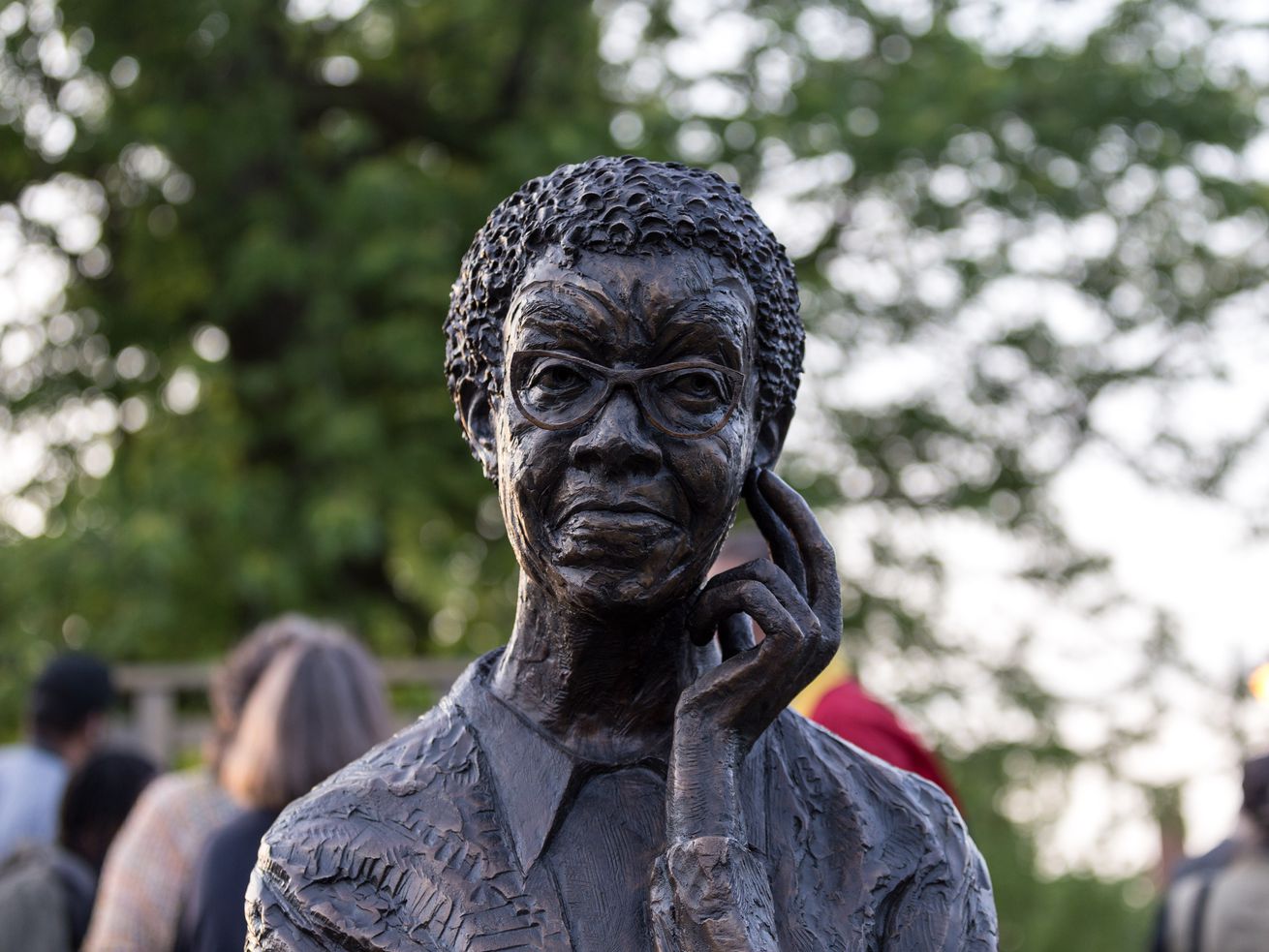
Winning the Pulitzer Prize nauseated Gwendolyn Brooks.
That gets left out when the story is told about how the Chicago poet became the first Black writer to win the honor. Brooks skips it herself in her interview for the American Folklore division of the Library of Congress.
It’s an important detail. Imagine: it’s May 1, 1950, about 6 p.m. in her modest residence at 9134 S. Wentworth Ave. Dusk, and the power is out — her husband, Henry Blakely, no mean poet himself, is having trouble at the auto shop. But their phone still works, and it rings. The Chicago Sun-Times calling — no wonder I like this part — to congratulate her.
“On what?” Brooks asks.
Reporter Jack Star tells her:
“You just won the Pulitzer Prize in poetry.”
“I didn’t!” she screams, feeling “sick in the stomach,” she later wrote in her journal.
Whenever somebody tells any history for any reason, it’s smart to pause and wonder why they’re telling that particular story. Toward what end? Diving deeper into Brooks’ win is worthwhile because of the innocence of her “On what?” and the shock of that “I didn’t!” I love that; it makes me feel I’m seeing her before me, not as an about-to-be-famous poet, but as a regular person, a woman standing in a darkened room, finding out that after 20 years of constant effort — she published her first poem, “Eventide,” at 13 — her life has changed. The scream itself is a poem. There was no one there to hear it except her small son. But a few minutes of me tapping on a keyboard, and you can hear an echo now, and maybe think about Brooks. Maybe feel connected to her and seek out her poetry.
/cdn.vox-cdn.com/uploads/chorus_asset/file/23210460/BROOKS_060818_unveiling.JPG)
The facts of history sit there, and it is up to each generation to fit them together and puzzle out what they mean. Why bother? To explain our world and draw us closer together as people. To emphasize our commonality, which is the only way things get done. Alone, a human being eats berries from a bush and sleeps in a cave. Collectively, we farm and build cities.
Oh, history can be other things. A bludgeon. A blindfold. I prefer its power to build empathy, because without understanding each other, without the unity that can follow, we are lost. Anyone looking around our nation right now would be justified in thinking, “Yup. Lost.”
It’s February, Black History Month, not a moment too soon. It comes at a time when the teaching of Black history is under assault from relentless Republican nationalism. School boards and state legislatures across the country are going after curricula and library shelves, banning books and passing laws that curtail the teaching of America’s tragic and glorious racial history.
Texas banned teaching critical race theory, a collegiate concept insisting that racism is manifested, not only in individuals, but in the structures and laws of society (which, spoiler alert, it is).
In Florida, a bill before the legislature would bar any history that causes anyone to “feel discomfort, guilt, anguish, or any other form of psychological distress on account of his or her race, color, sex, or national origin.”
This is what the kids call a “self-own.” Or as I sometimes reply to particularly toxic readers, “You aren’t refuting my argument so much as manifesting it.”
The Republicans aren’t erasing America’s racist history; they’re adding to it.
History should be unrestricted, freewheeling and available to all. That’s one of its greatest appeals. You may strap on your sandals, sit in a tent with Julius Caesar and ponder the Rubicon, or don your wool-lined leather jacket and climb into the tail gunner position of a B-17 Flying Fortress and go get those ball bearing factories at Schweinfurt. You needn’t be either Italian or a gunner. Though a white male, I can share Gwendolyn Brooks transcendent moment of joy because, like her, I am a human being, an American, a writer, someone who loves Chicago — we have a lot in common.
“Art hurts,” Brooks told a crowd gathered to see something shockingly new unveiled in 196 — the Picasso sculpture, at what is now Daley Plaza. “Art urges voyages/and it is easier to stay home.”
History does too. The past offers painful pilgrimages that are easier to skip. Though no decent person does. These are crucial voyages we all must embark upon and endure because, as difficult journeys often do, they take us to a better place. No law is going to change that.







